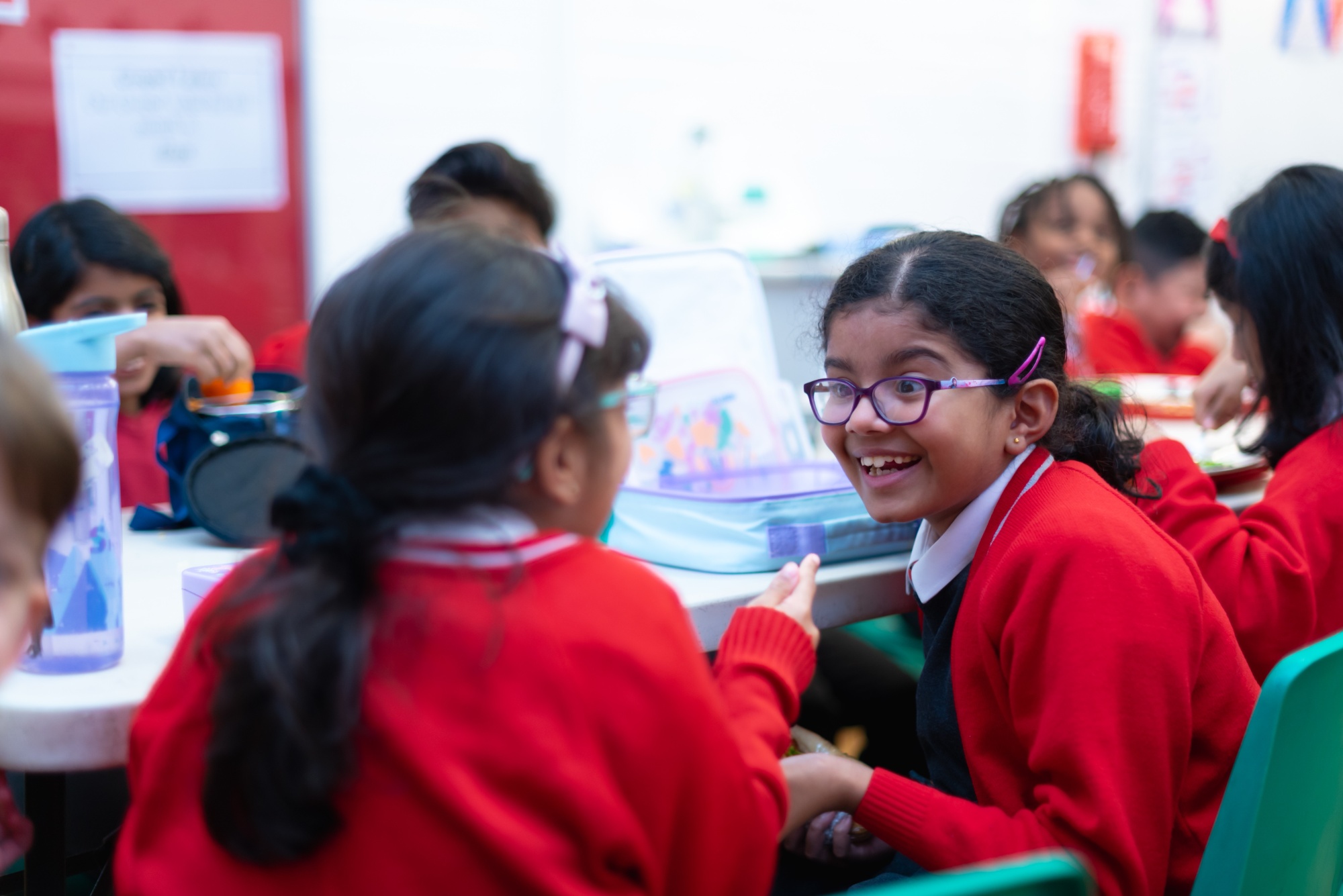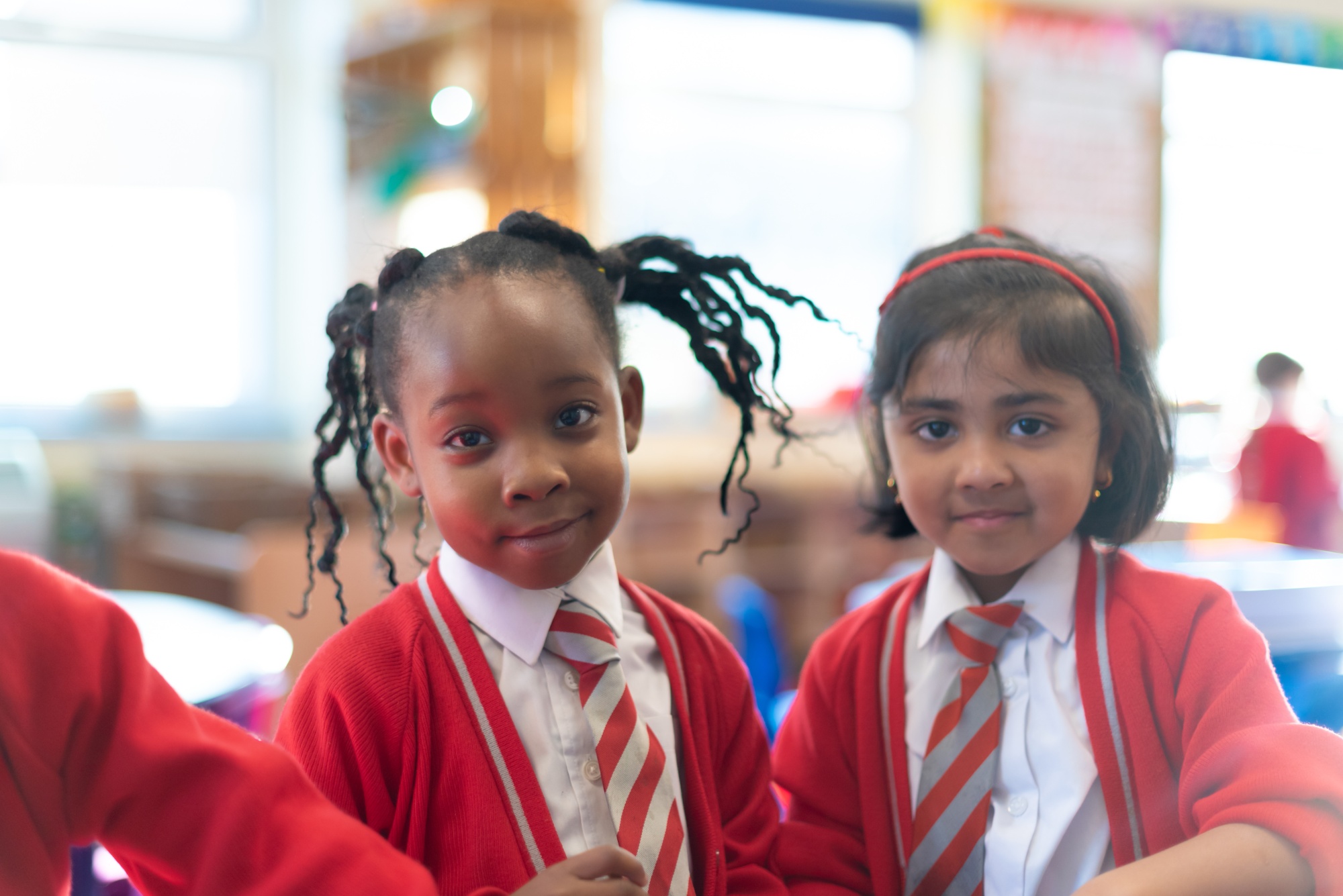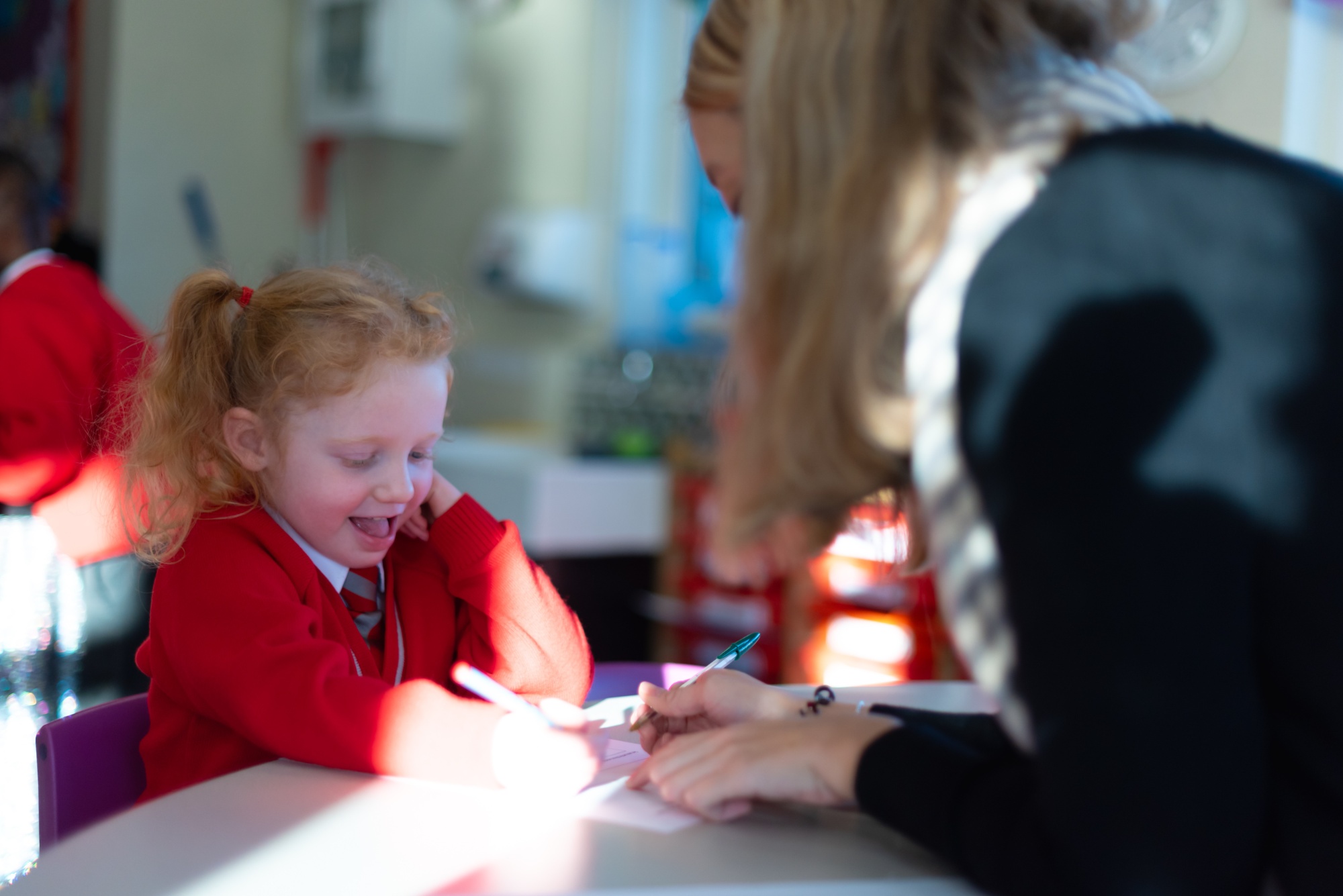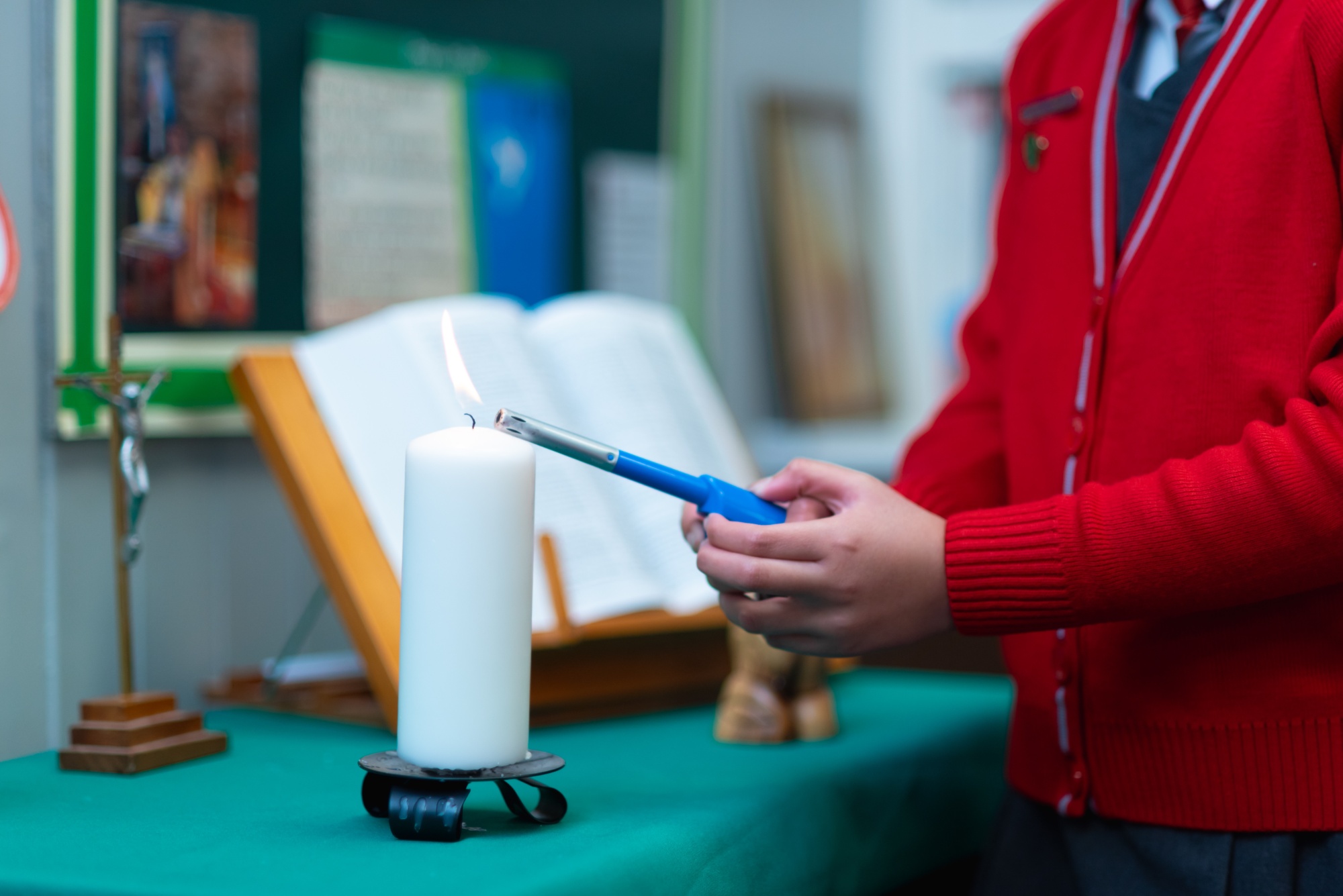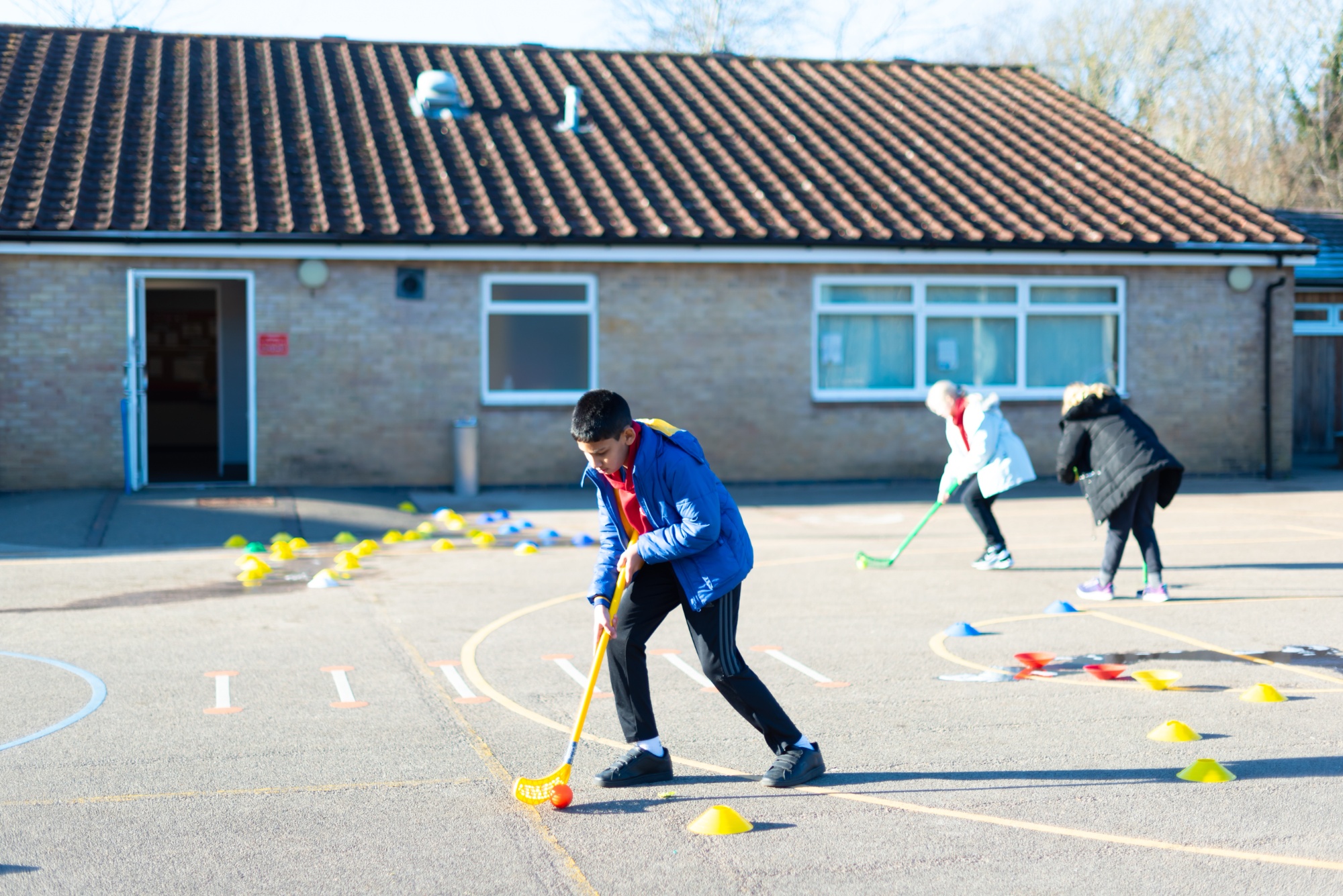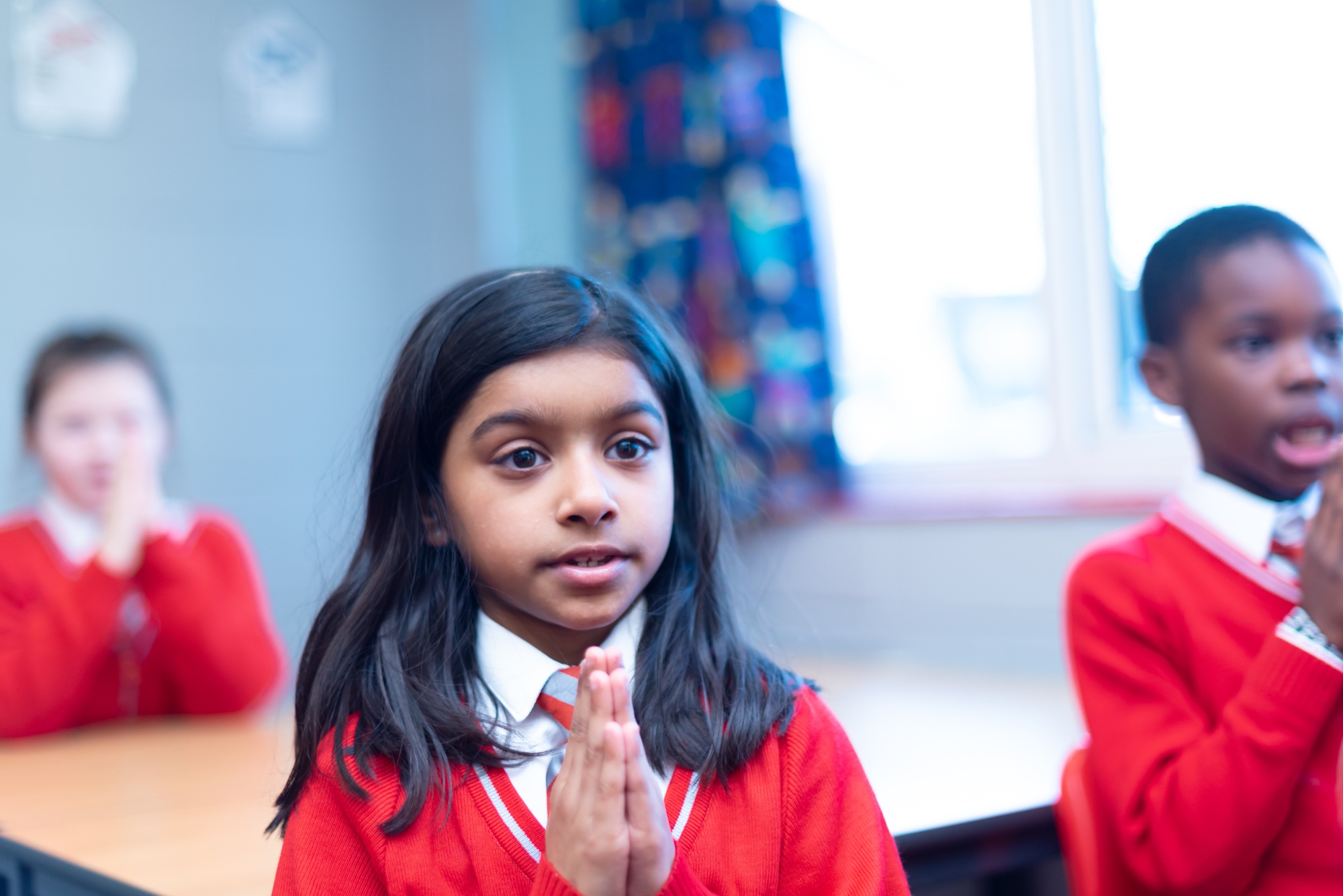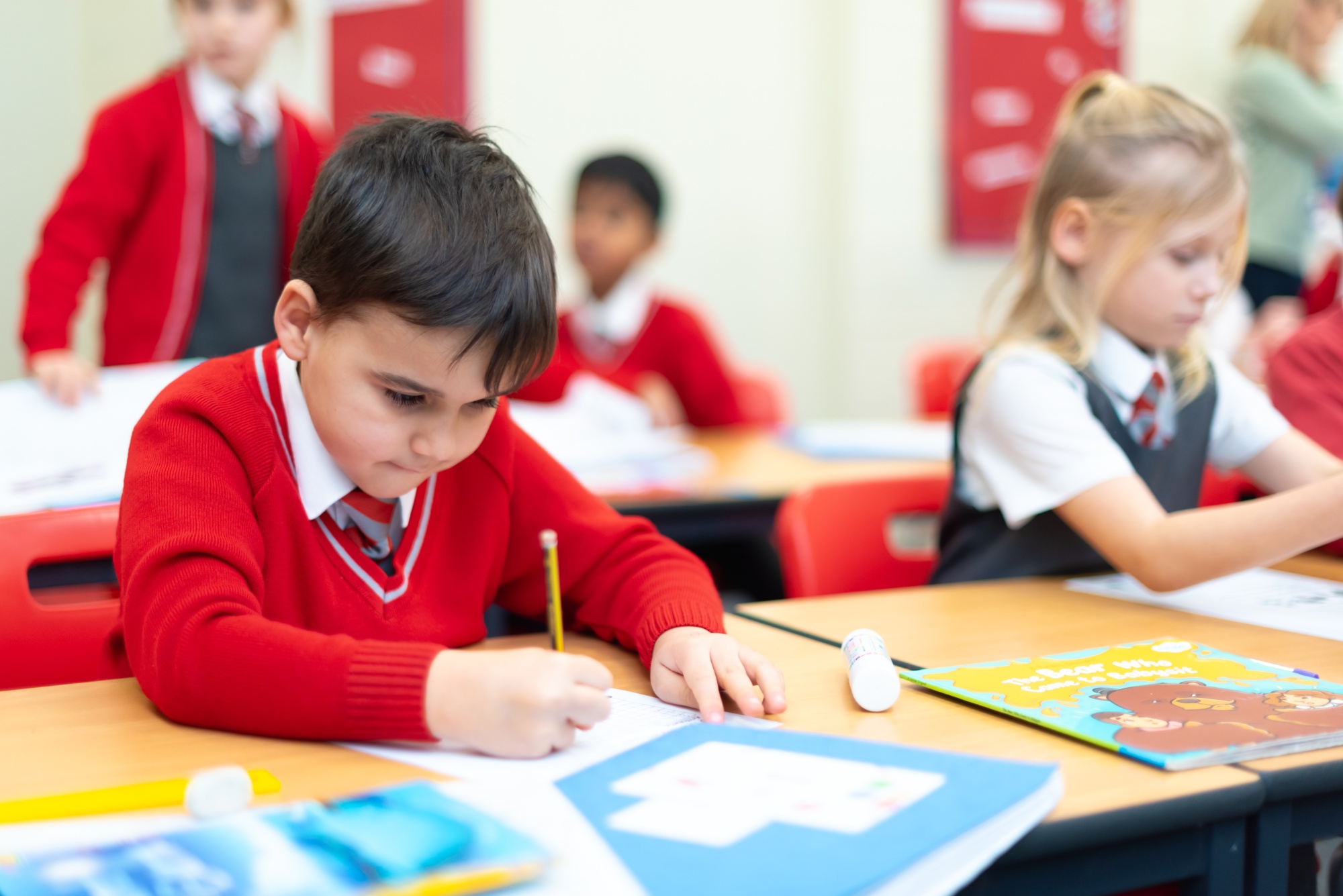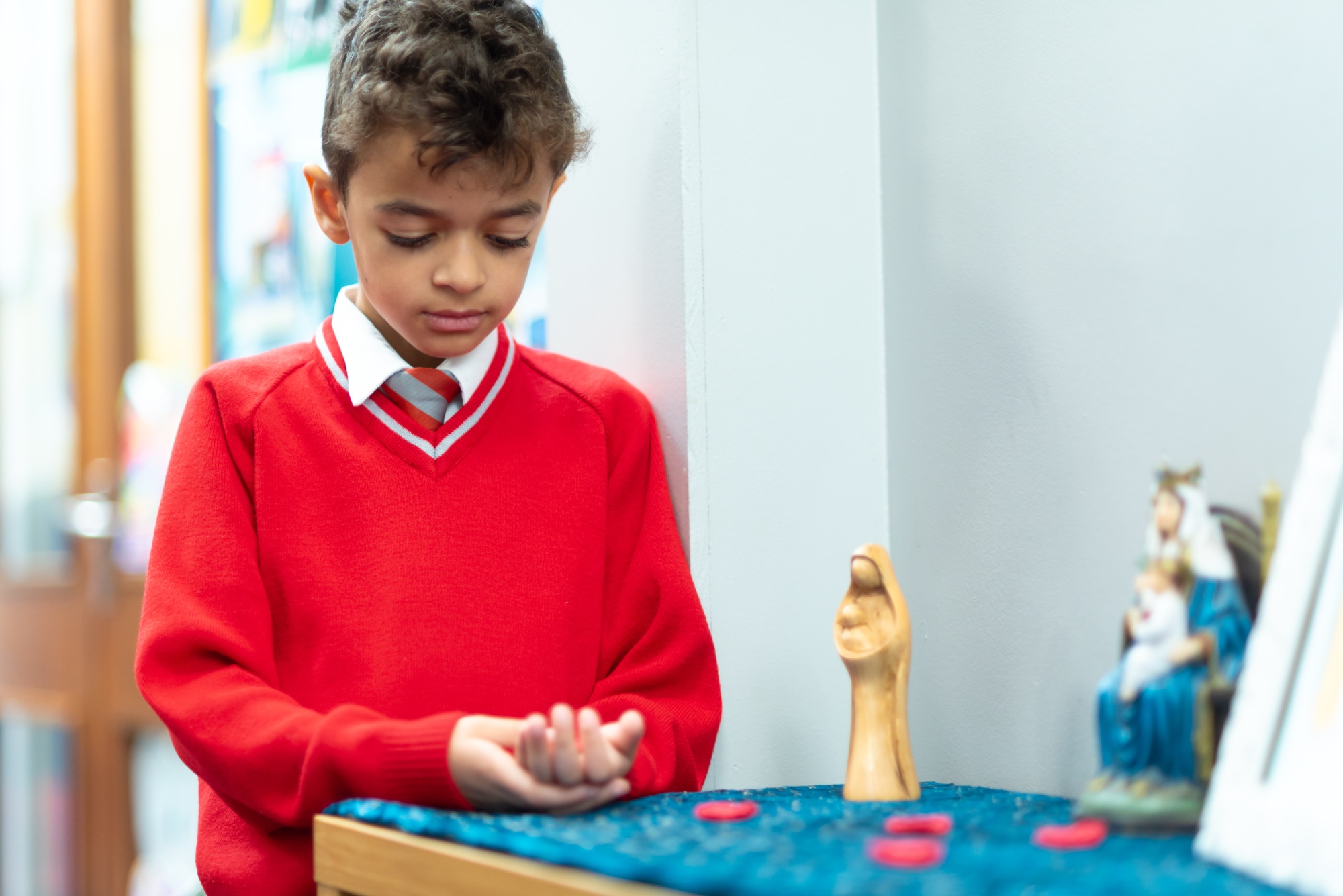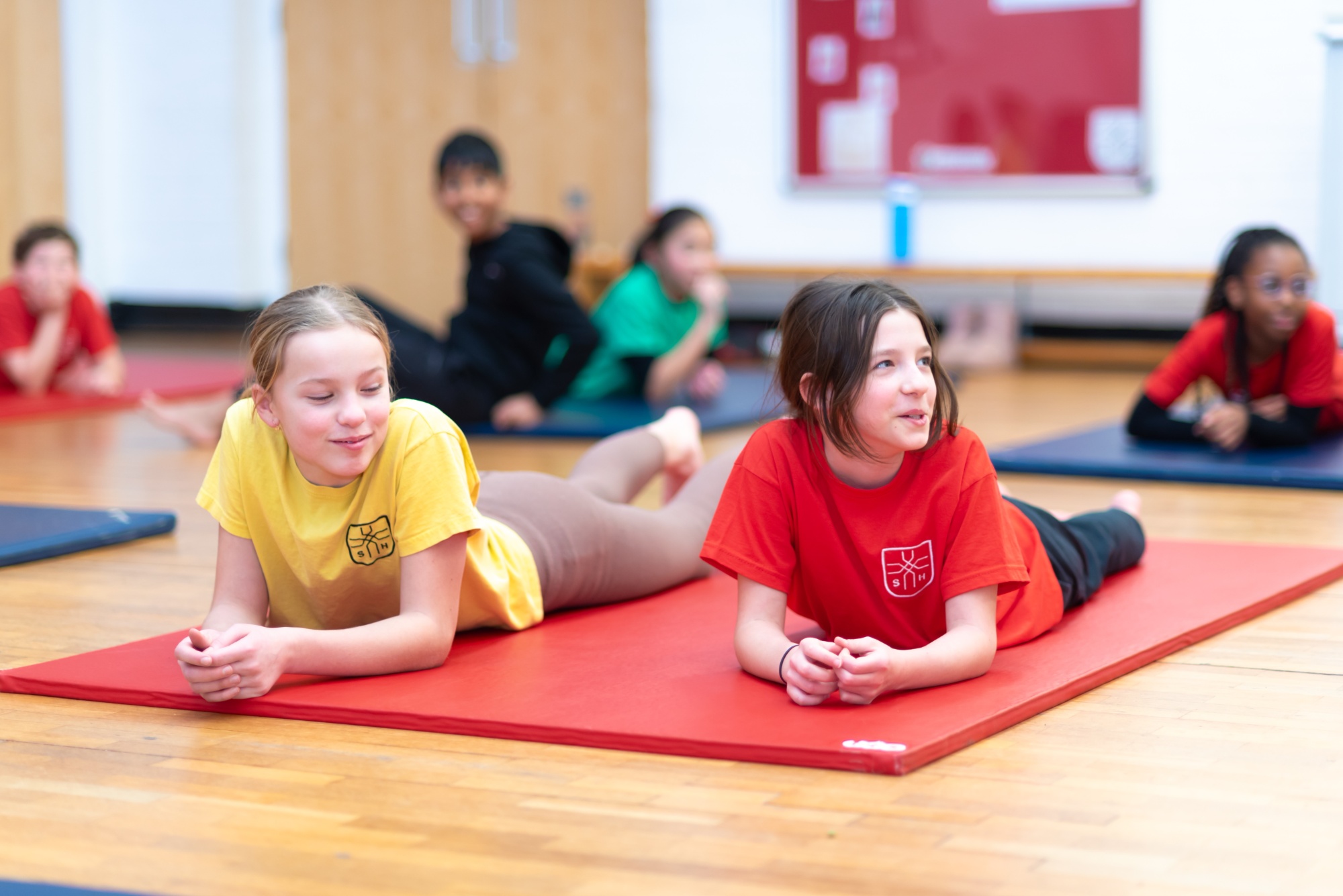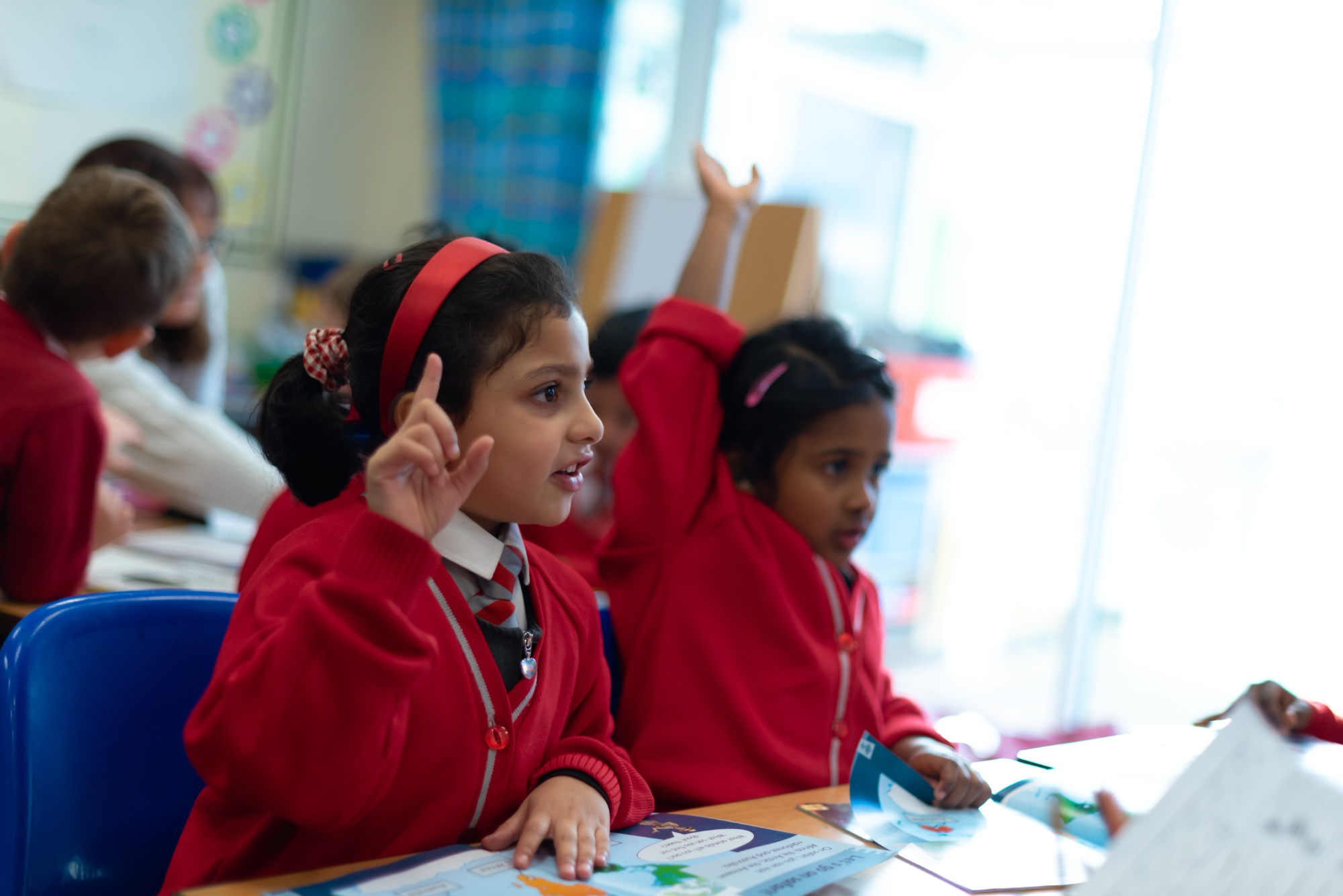Religious Education
Subject leader: Mrs S Robertshaw
Intent:
Through the teaching of Religious Education, we intend to teach all pupils about God’s great love for everyone and the world he created; to develop an understanding of, and ability to reflect on, the ‘Good News’ of Jesus and the beliefs, values and teachings of the Catholic faith; to become knowledgeable about and show a growing awareness and respect for other faiths and cultures.
Religious Education aims to enable pupils to explore, reflect on and respond to a range of important questions relating to their own spiritual growth and development. It offers opportunities to explore and develop core values that underpin our human existence: understanding, valuing and demonstrating love, empathy and tolerance towards others.
We aim to provide a rich, broad and balanced RE curriculum which will nurture our children’s curiosity and will enable them to become life-long learners.
The RE curriculum is intended to provide every child in our care, thoughtfully sequenced, and engaging learning experiences. This learning journey will allow all children to achieve high academic standards, fulfil their maximum potential and become positive contributors to the world around them.
Implementation:
In line with Bishops’ Conference recommendations, 10% of curriculum time is allocated to Religious Education. Religious Education is taught as explicit lessons but is also embedded in other areas of the curriculum and in the day-to-day experiences and life of the school.
The school currently follows the Diocesan Primary Religious Education Curriculum which incorporates all aspects of the ‘Curriculum Directory for Catholic Schools’. The curriculum provides opportunities for the children to learn about the beliefs, traditions and teachings of the Catholic Church and about the celebration and ritual of worship. They investigate how faith is reflected in the social practices and moral decisions of life. They learn to talk about their own experiences and feelings, and to respect those of others. They are encouraged to engage with questions of meaning and purpose, questions that are sometimes difficult to answer.
RE lesson content and plans are informed by ‘The Way, The Truth and The Life’ and ‘Come and See’ schemes of work and the Diocesan ‘I can Statements’.
There is a time-line in place to implement the revised Religious Education Directory: ‘To Know You More Clearly’.
This will be fully in place by September 2025.
The curriculum is delivered through: reading and writing opportunities, stories, discussion, art, drama, role play and music; a wide range of worship opportunities, prayer and reflection; the exploration and appreciation of the natural world; the day-to-day experiences of living together as a school family with Christ at the centre.
Assessment, Monitoring, Recording and Reporting:
Judgements on the impact of the RE curriculum on pupils are based on evidence from regular termly monitoring of teaching and learning conducted by the RE leader and SLT: lesson ‘drop ins’, learning walks, book scrutiny, interviews and book sharing with pupils.
Pupils are assessed at the end of each RE teaching unit (six units over the academic year): with teachers making judgements for each pupil according to Diocesan guidelines using the criteria in the ‘I can statements’ agreed by the Bishops’ Conference.
Formal teacher assessment is carried out termly. Children’s knowledge and understanding is levelled as being ‘working towards’, ‘expected’, ‘greater depth’ in RE on the class tracker sheet which is held on the Teacher Drive. These are shared with the RE leader and SLT.
Progress and achievement in Religious Education is reported to parents/carers in a written report at the end of each academic year.
Other Faiths:
To promote and celebrate the diversity and to encourage empathy and respect within a multi-faith society, we give children the opportunity to explore other faiths throughout the year. In the autumn term we have a two week focus on Judaism and in the summer term we have a two week focus on Islam. The children explore the history of religion, historical figures, festivals, religious ceremonies and rites of passage.
Classroom Environment:
RE should occupy a prominent position and have a clear importance and status within the classroom. The RE display should reflect the current teaching unit and include relevant vocabulary, questions to engage pupils, illustrative images and celebrate children’s’ work.
Each classroom will also have a focal area for prayer with a coloured drape reflecting the liturgical year, age-appropriate texts, the current Gospel Value displayed and further items to stimulate and support prayer and reflection.
Impact:
Children are well-prepared for the next stage of their education as confident, enthusiastic learners who are witness to Christ in their words and actions.
Children of all abilities and backgrounds achieve well in RE relative to their starting points.
Children are happy, well-rounded individuals who can articulate how their Catholic education has impacted on their beliefs and values.
Children show compassion, justice, love and forgiveness in their relationships with others.
Children know how we can live by the Gospel values: celebrate successes and gifts, champion
justice and care for God’s world.
Children have the opportunity to celebrate traditional Catholic traditions, celebrations and feasts.
Children grow to know and love God, develop their moral and spiritual nature and deepen their faith through worship, prayer and reflection.
Children know that we live in a diverse community of different cultures and faiths and that these must be respected.
Our school environment reflects and celebrates our Catholic faith.

